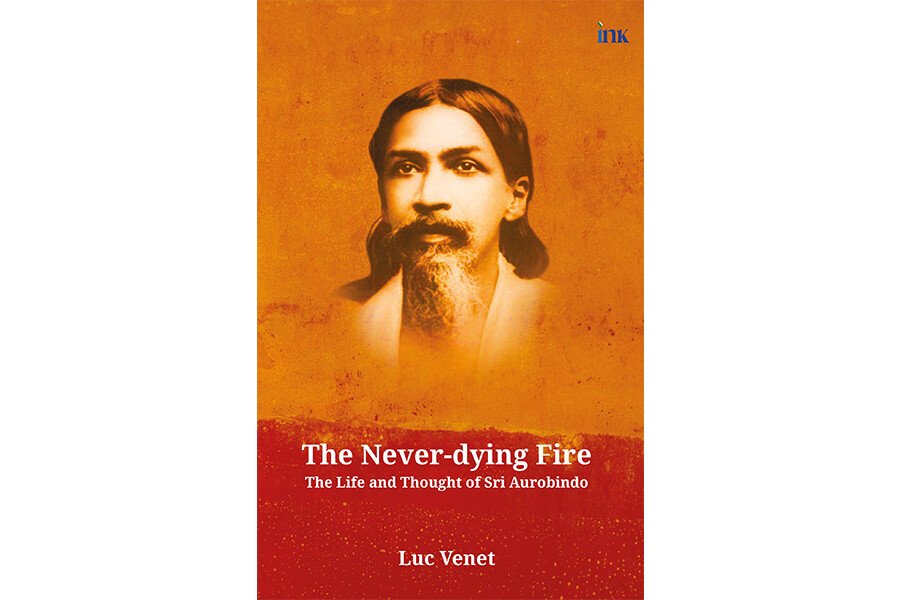The Metaphor of Deepavali
Deepavali, or Diwali as commonly known, will be celebrated on the 12th of November this year. What is the inner, or spiritual, significance of Diwali in Sanatan Dharma? An excerpt from Partho's latest book.

To mark the 151st birth anniversary of Sri Aurobindo, BluOne Ink is launching a new and insightful biography of the great revolutionary and Rishi, Sri Aurobindo on 15th August in India and France. Here is an excerpt from the book by Luc Venet.
The first of January 1908 in the morning, the train bringing Aurobindo and Barin back from Surat entered Baroda station.
Friends, students and many unknown well-wishers awaited Aurobindo as he stepped out of his compartment. The young men clutched the carriage transporting the two brothers and escorted them to the residence of Khaserao Jadhav.
A visitor was awaiting them: Vishnu Bhaskar Lele, a Yogi whom Barin had met while searching for a master to chaperone his project of warrior monks. Lele was a simple civil servant, but his eyes glowed with the evidence of an inner life.
Aurobindo informed him about his practice of pranayama and the results he had attained until everything had stopped. Lele suggested that he should suspend all his outer activities and join him in meditation.
Aurobindo accepted, but not before reporting on the Surat events to the packed crowd of well-wishers camping on the lawns outside Khaserao’s house. Then he made a courtesy call to his former employer, the Maharajah.
Finally, he joined Lele in a friend’s townhouse and there, in a small room at the top, the two men sat facing each other on the floor.
‘Sit in meditation,’ he said, ‘but do not think, look only at your mind; you will see thoughts coming into it; before they can enter, throw them away from you till your mind is capable of entire silence.’ I had never heard before of thoughts coming visibly into the mind from outside, but I did not think of either questioning the truth or the possibility, I simply sat down and did it. In a moment my mind became silent as a windless air on a high mountain summit and then I saw a thought and then another thought coming in a concrete way from outside; I flung them away before they could enter and take hold of the brain and in three days I was free.
These three days of meditation with Lele would provoke a radical change of consciousness. Ordinary reality had been abolished in what the Upanishads call the consciousness of the silent Brahman, and which Buddhism calls Nirvana. Years later, Aurobindo attempted to put words on this new sensory revelation.
It threw me suddenly into a condition above and without thought, unstained by any mental or vital movement; there was no ego, no real world–only when one looked through the immobile senses, something perceived or bore upon its sheer silence a world of empty forms, materialized shadows without true substance. There was no One or many even, only just absolutely That, featureless, relationless, sheer, indescribable, unthinkable, absolute, yet supremely real and solely real. This was no mental realization nor something glimpsed somewhere above,–no abstraction–it was positive, the only positive reality–although not a spatial physical world, pervading, occupying or rather flooding and drowning this semblance of a physical world, leaving no room or space for any reality but itself, allowing nothing else to seem at all actual, positive or substantial.
After those three days, Aurobindo returned to his friends at Khaserao Jadhav’s residence. He noticed that the silence endured effortlessly in him.
Deepavali, or Diwali as commonly known, will be celebrated on the 12th of November this year. What is the inner, or spiritual, significance of Diwali in Sanatan Dharma? An excerpt from Partho's latest book.
आज की तत्काल आवश्यकता है की आध्यात्मिक एवं बौधिक स्तर पर विकसित लोग सनातन धर्म के लिए खड़े हो, उसकी रक्षा करें और उसके प्रवक्ता और वार्ताकार बनें।
The Age of Sri Aurobindo is here...Excerpted from a talk on Sri Aurobindo and His Relevance in Present-Day India delivered by Dr. Pariksith Singh recently in Jaipur.

